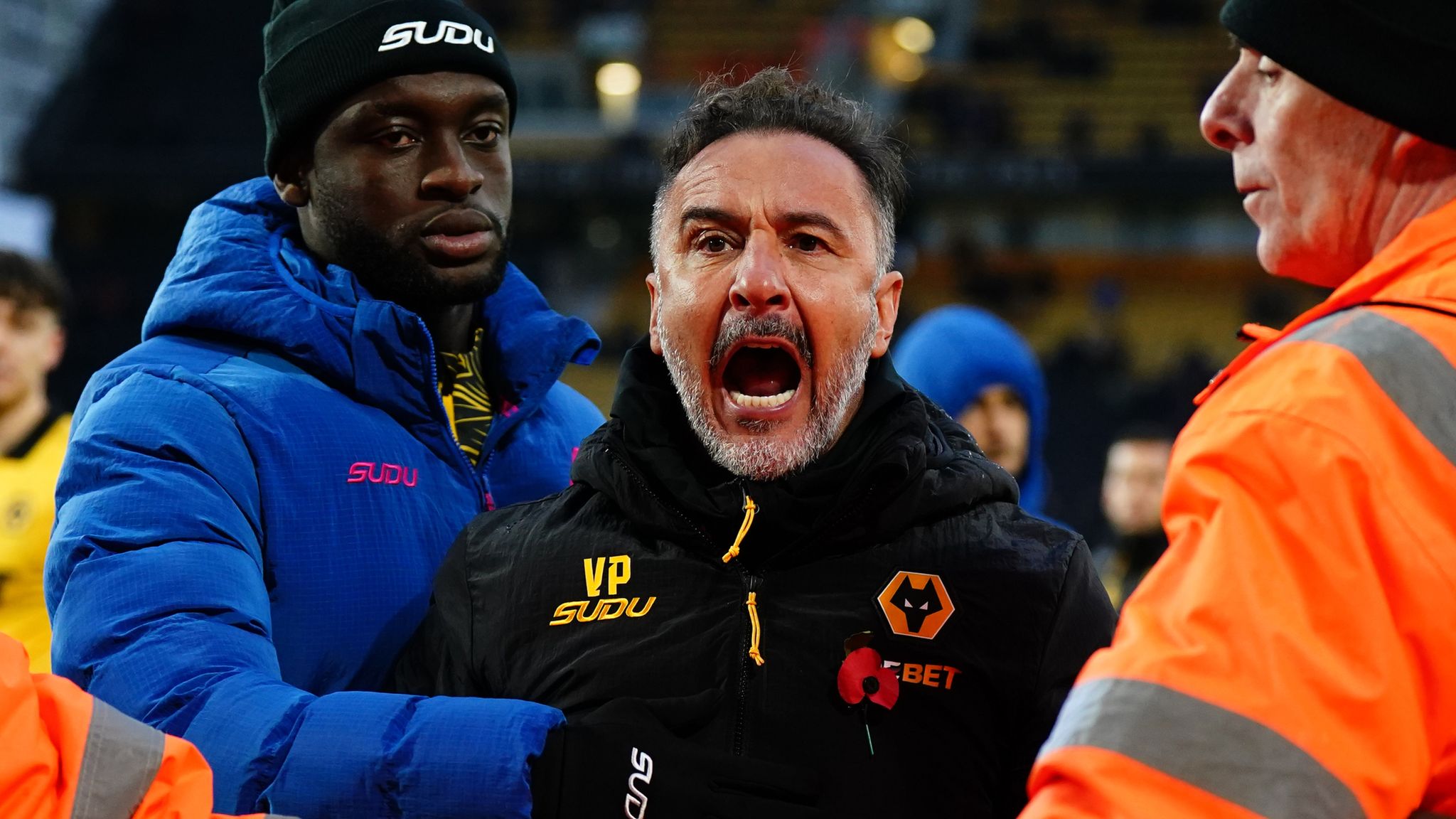The story of Wolves this season reads like a football cautionary tale — one of big promises, risky decisions, and a manager who quickly lost his grip on both the dressing room and the pitch.
Vítor Pereira’s downfall wasn’t just about poor results; it was about confusion, misplaced trust, and a leadership structure that crumbled before it even had a chance to take shape.
By the time Wolves suffered that humiliating 3–0 defeat at Fulham, the writing was on the wall.
Pereira looked exhausted, broken even, and when the club’s executive chairman Jeff Shi finally pulled the trigger the next day, few were surprised.
Too Many Captains, Too Few Points
If you ever needed a symbol of Wolves’ dysfunction, it came on October 26.
During the 3–2 home loss to Burnley, Jorgen Strand Larsen became the fifth player to wear the captain’s armband this season.
At that point, the team had twice as many captains as Premier League points.
What made it worse was the absence of the designated “leadership group” — Toti Gomes, José Sá, Matt Doherty, and João Gomes — none of whom even started the match. That’s how far things had deteriorated.
After being left on the bench, goalkeeper Sá was reportedly seen outside Molineux discussing the team’s problems with frustrated fans.
From ‘First the Points, Then the Pints’ to the Sack
Just a year ago, Pereira’s bond with the Wolves faithful seemed strong.
After wins, he’d share a drink with supporters, spawning the popular phrase “first the points, then the pints.” But this season, the smiles faded fast.
Two and a half months without a win left him drained and desperate.
Even the new three-year deal handed to him by Shi in September — before Wolves had managed a single point — couldn’t save him. That faith, it turned out, was misplaced.
Jeff Shi’s Managerial Merry-Go-Round
Ever since sacking Nuno Espírito Santo four years ago, Jeff Shi has been on a relentless hunt for the next man to restore Wolves’ spark.
Pereira seemed like that man — especially after steering the team to safety last season.
But his short-lived success only emboldened Shi to reshape the entire football setup in Pereira’s image.
Out went sporting director Matt Hobbs, replaced by a new five-man leadership group fronted by Pereira’s close ally, Domenico Teti.
The issue? Teti had zero experience in English football. That gamble proved costly.
A Plan That Fell Apart Too Soon
Pereira had big ideas: tall, strong, athletic players suited for his preferred 3-4-2-1 system. But within five matches, he abandoned it for a 4-3-3.
Suddenly, Wolves had a squad built for one vision — while playing in another. Results didn’t improve, and the confusion only deepened.
At Fulham, he tried to revert to a back five, but the damage was done.
Fans were already turning, chanting “you’re getting sacked in the morning” as Pereira trudged off the pitch.
Recruitment Missteps and Risky Bets
The summer’s recruitment strategy was another red flag. Pereira knew creative forces like Matheus Cunha and Rayan Aït-Nouri would be sold, but his replacements — such as 27-year-old Jhon Arias, untested in Europe — raised eyebrows.
Other signings, including Marshall Munetsi and David Møller Wolfe, failed to make an impact.
It was a team built for physicality in a league where skill and creativity still win matches.
Wolves became predictable — wide crosses, minimal imagination — and easy to shut down.
The Repetitive Cycle of Short-Term Fixes
For Wolves fans, this all feels painfully familiar. In 2022, Bruno Lage was replaced by Julen Lopetegui, who kept the club up with heavy spending.
Last season, Gary O’Neil was sacked, and Pereira repeated the same rescue act.
But lightning doesn’t strike three times. This squad lacks the magic of players like Cunha who could change a game on their own
. Even if funds are freed up in January, attracting new talent to a club flirting with relegation will be a hard sell.
What Comes Next for Wolves
With Pereira gone, Wolves are back to square one — searching yet again for a savior to steady the ship.
Whoever steps into the dugout next will inherit not just a struggling team, but a fractured structure and a weary fanbase.
Still, there’s time to turn things around. If the next manager can pull off another miracle and keep Wolves in the Premier League, fans might just build a statue of him outside Molineux — because after this chaos, survival alone would feel like glory.
